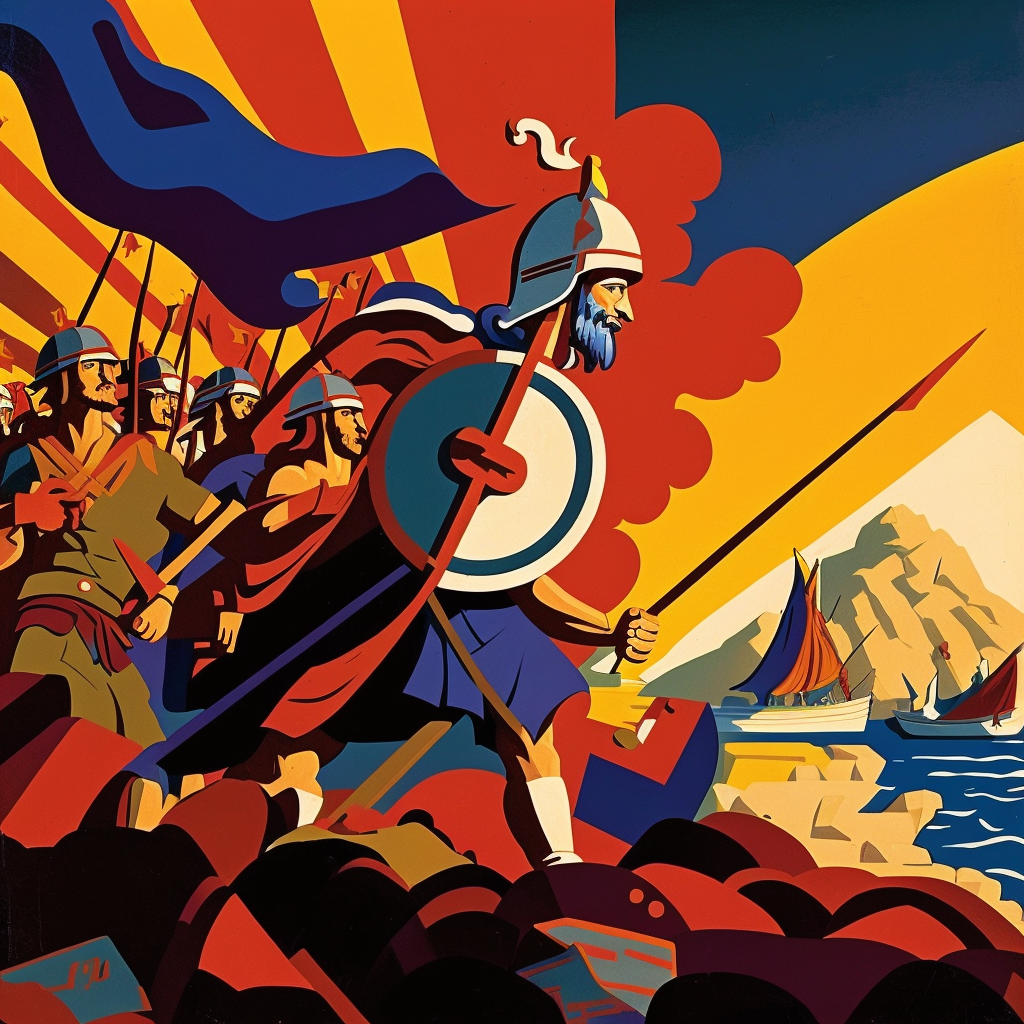Lorie Berberian
“The strong do what they can, and the weak suffer what they must.” This was the phrase the winning Athenians proudly declared over their enemies during the Peloponnesian War of 404 BCE. In offering an ultimatum of surrender or death to the Melians, the victors identified this ruling principle of their foreign policy, one that continues to be upheld by the powers of the world. In other words, “might makes right.”
Under these pretences, the actions of the strong are always “rightful” because of the strong’s capability to enact them. The emphasis has been skewed away from the action’s morality toward the potential resources available to enforce the action. In an international system void of empathy and human values, this ideology has thrived and paved the way for the victory of the strong and the forcible suffering of the weak. This pattern is more evident today, especially with regard to the destructive actions taken by the visibly stronger Republic of Azerbaijan in pursuit of the annihilation of the Armenian population of the Republic of Artsakh (Nagorno Karabakh).
In dissecting the statement mentioned above, we see a dramatic difference in the type of actions available to the strong and the weak. On the one hand, the strong “do what they can.” Strong states always choose to optimize their gains and avoid staying idle or forgoing beneficial opportunities. They also utilize their existing resources to achieve a goal in sight. Although their finite resources limit their ambitions, they enjoy a fair amount of freedom to mobilize resources when the opportunity arises. With that in mind, to prevent further immoral behaviour by the strong states, one must either inhibit the emergence of exploitative opportunities or limit the resources at their disposal.
On the flip side of the coin, the weak “suffer what they must.” The inevitability of the suffering and loss endured by weak states is a result of the strong’s actions. The suffering may also be the actions’ direct intent since the “might is right” ideology implies that the destruction of one’s capability to retaliate automatically strips one from its right to retain control of one’s resources. Without the might to protect them, the strong can simply annex the assets and maintain rightful ownership. The degree of harm experienced by the weak states is entirely dependent on the point of satiability of the strong. The constant suffering of the weak states diminishes all remaining resources, inhibiting attempts to balance the power between the two actors. This paradigm places the weak in a position of complete failure to survive in the international system, as it eliminates most positive courses of action that could secure some leverage or stability in world affairs.

The “might is right ‘’ ideology means the strong can choose how much to take, and the weak must deal with the emerging consequences. From the perspective of a strong state, it justifies exploiting every opportunity in search of gains. From the weak’s perspective, the principle perpetuates existing inequalities and magnifies its weaknesses. The international community diagnoses the pattern of behaviour as a state’s need for survival. However, it does not seem anxious to cure the disease, even if its symptoms have been shown to exceed standards of greed and vengeance. In line with this, strong states do what they must to maintain their powerful position in the world, achieve economic growth, and stabilize internal conflict.
Similarly, the weak follow suit to sustain territorial control over their nation, shield themselves from international threats, and provide vital services to citizens. The raging inequality in the world economies and societies can help to explain these varied definitions of survival. In that sense, the founding reality of international relations is a zero-sum game between instinct-driven animals with varying levels of strength in contrast with the description we are told to believe that is rooted in the rationality and humanity of the actors.
The “might makes right’’ ideology provides a focused lens through which we can observe the escalating violence enforced upon the Armenian population of Artsakh by Azerbaijan. Mainly, we see the strong doing what they can to achieve their regional goals and the weak suffering the consequences. The “might is right” mindset can be seen through the Azerbaijani policy of imposing varied types of pressure and suffering onto the Armenian population until Armenian resources for defence, retaliation, or survival are depleted. Moreover, we continue to witness the Armenians’ inescapable suffering and the state of their survival and peace resting in the hands of the strong. The prime example of the “might is right’’ ideology is the blind eye the international community has turned to the ongoing strife of the Armenians, compared to its sacrificial love towards more opportunistic victims of oppression.
It’s hard to deny the unbalanced outcomes of an international system ruled by such an ideology. However, we must remember that it was the winning Athenians who claimed “might is right” as the ultimate principle of foreign affairs. They are the ones this system benefits. The weak, on the other hand, are disadvantaged and forced to accept the suffering emerging from the strong’s geopolitical ambitions.
Everything, of course, must eventually come to an end. Even the most sophisticated system has a blind spot leading to its downfall. While the strong strive to divide and conquer, can the weak powers of the world unite and resist? Armed with a united front, the weak powers of the world could construct a competitive force against the strong and turn the tables in their favour. This proposition remains a distant possibility in a fragmented global society with magnified differences. Yet change is always possible, especially in a time of shifting centers of power. In due time, an opportunity is bound to arise where the weak will renew the ruling ideology of international affairs. Then, as one is conscious of the woes of the previous ideology, it must refrain from taking up the deadly cycle of vengeance and aim to recreate the system to uphold morality over ability. If international relations is truly a game between rational powers, its ruling principle will evolve into one proudly declared by both the victors and losers of world affairs: “Do unto others as you would have them do unto you.”

